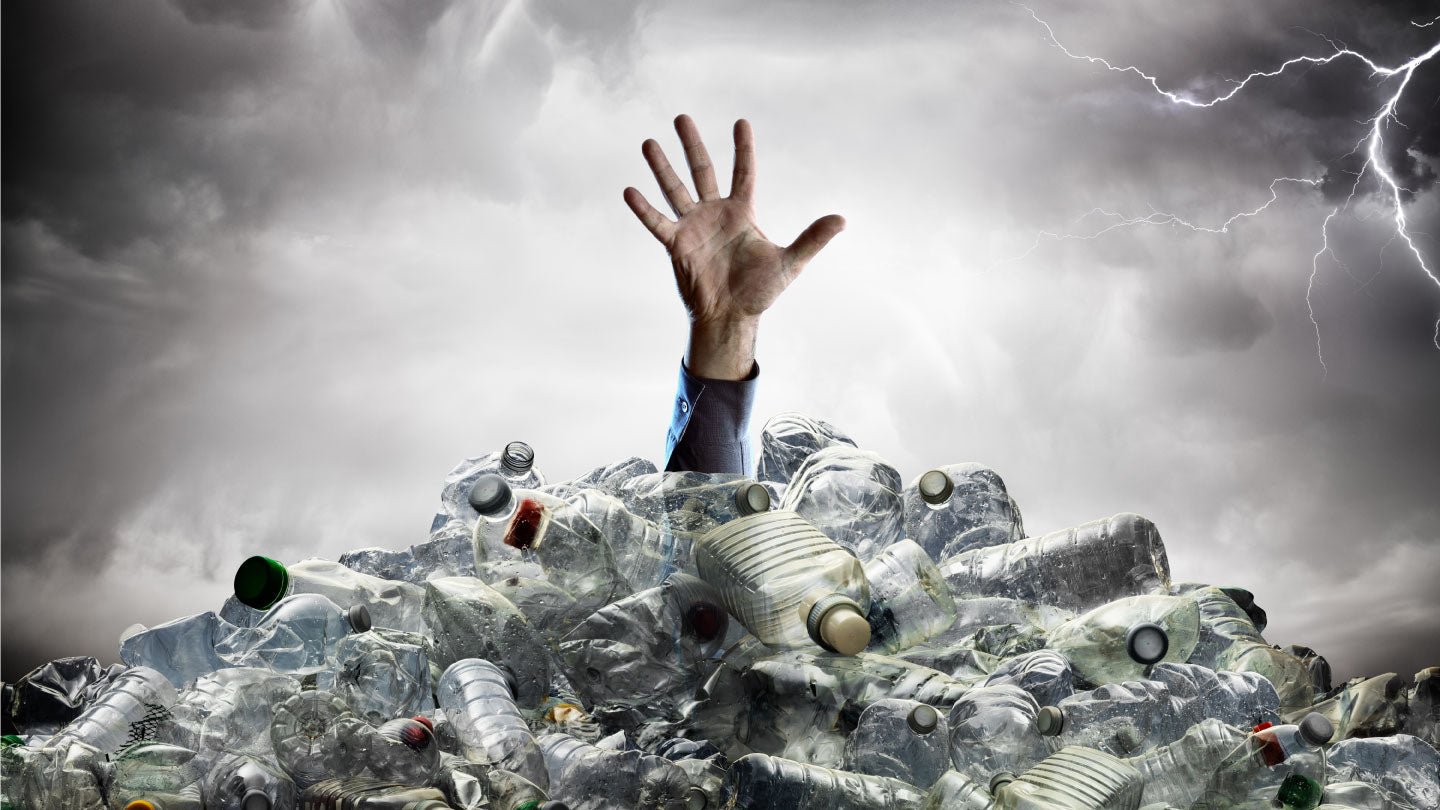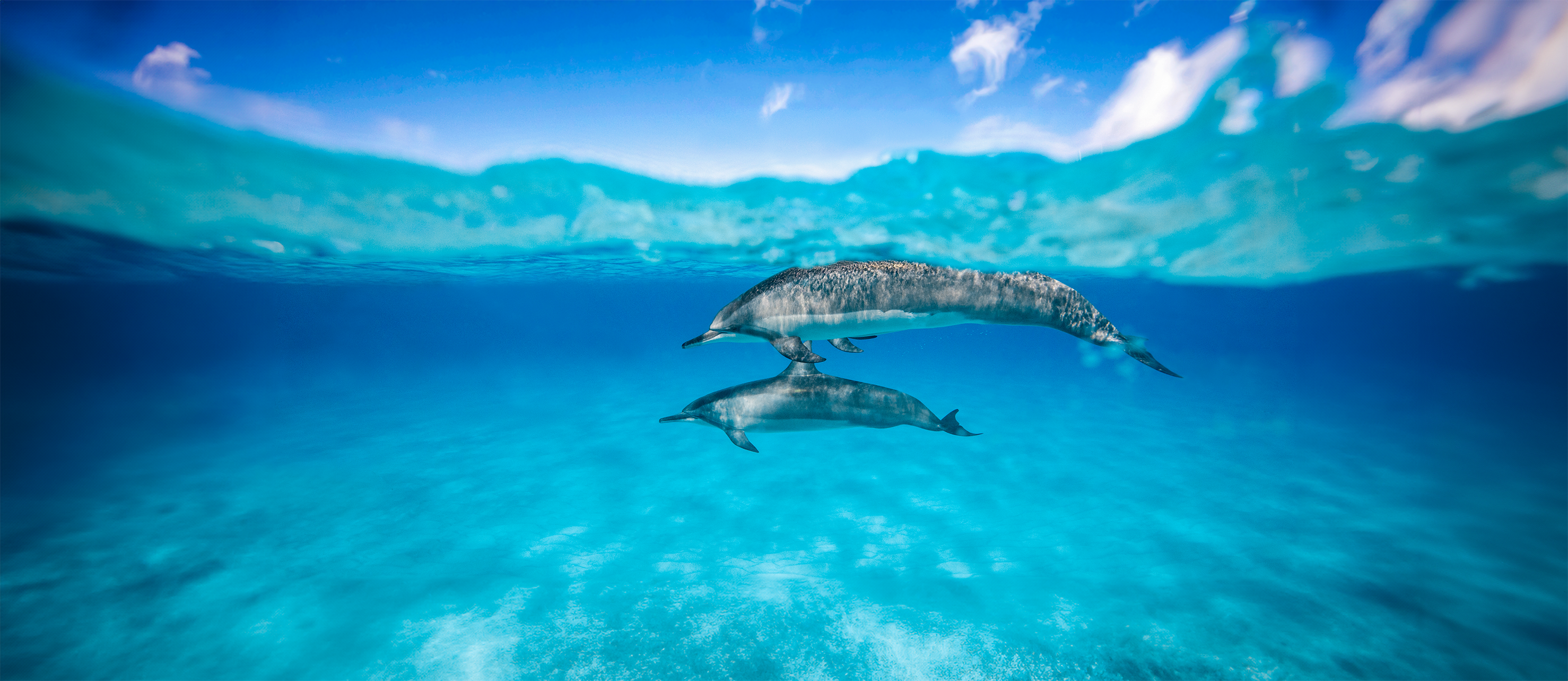
5 MIN READ
8-05-2024
Dolphin’s Threat:
Plastic Debris
Mikaela Walsh, 4ocean Research Analyst
Dolphins now dodging predators and ghost nets.
One of the most friendly marine mammals desperately needs help to escape the plastic pollution crisis taking over the oceans.
Dolphins are aquatic mammals closely related to small whales and other porpoises. It is estimated that up to 300,000 dolphins, porpoises, and small whales are killed each year from plastic pollution and abandoned fishing gear.
Dolphins, porpoises, and other small whales are majorly affected by plastic pollution in the aquatic environment for internal and external causes.

These marine mammals are heavily affected by plastic ingestion. Ingesting plastic debris has many painful effects.
- Intestinal Tears
- Intestinal Blockages
- Lead to Illness and Diseases
- Feeling “full” of indigestible material
Dolphins, porpoises, and small whales are closely related to marine mammals. A short-finned pilot whale washed ashore on the coastline in Thailand, where veterinarians were shocked at what was inside this small whale. A representative from Thailand Department of Marine and Coastal Resources told reporters that more than 80 plastic bags were recovered from the stomach of a pilot whale, weighing around 17 pounds of debris.

SOURCE: https://www.cmaquarium.org/winter-updates/
Marine mammals are also subject to plastic debris entanglement. Plastic debris and abandoned fishing gear are hazardous to marine organisms because they are entrapped in this unwanted debris and cannot be removed without human intervention. Hazardous debris and ghost nets easily get entangled around different body parts of marine organisms, making it difficult to swim and properly obtain food, adding weight and size to their swim, and inevitably causing death. Some organisms drown immediately if the debris is too heavy to pull against the ocean currents.
In 2005, Winter the Dolphin was found off the coast in Florida with a crab trap rope stuck around her tail, cutting off the circulation to her tail. When beach-goers saw Winter, they immediately called for help to save the dolphin. Thankfully, Winter was saved but had to undergo a tail amputation. Many veterinarians were concerned about her survival ability despite having no tail, which is essential for locomotion. All the scientists made a prosthetic tail for Winter. Making this was very complex since no one had ever done this before. Shocking everyone, Winter lived until 2021, with her courage never to be forgotten.
Winter the dolphin was very inspiring for many people across the globe, making the big screens in cinemas across the world. The movie based on Winter, Dolphin Tale, helped raise conservation efforts and awareness of plastic pollution.
Events similar to these occur every day, but not all have happy endings like this one. Once organisms become entangled in unwanted debris, they are bound to shorten their life expectancy and cause death.
Researchers have found that 61 different species of the 90 whales and dolphins have been directly affected by the ingestion or entanglement of plastic debris.
Dolphins, porpoises, and small whales are marine mammals that face the threat of plastic pollution across all oceans.
Ways you can help:
- Reduce the amount of single-use you use.
- Switch to reusable options.
- Support organizations and businesses with missions to clean the oceans
- Educate peers about the oceanic plastic crisis.
These are all excellent ways to reduce the amount of plastic entering the oceans every day. It is estimated that 11 million metric tons of plastic debris enter the ocean annually, and as much as 200 million metric tons of plastic debris circulate in the environment. If we want to change the outcome for the oceans, everyone needs to work together to put an end to the oceanic plastic crisis. Stopping the problem at the source is the best way to put an end to the issue.
If you encounter a marine mammal in distress, call local conservation groups and organizations to take the proper steps to protect the organisms.






